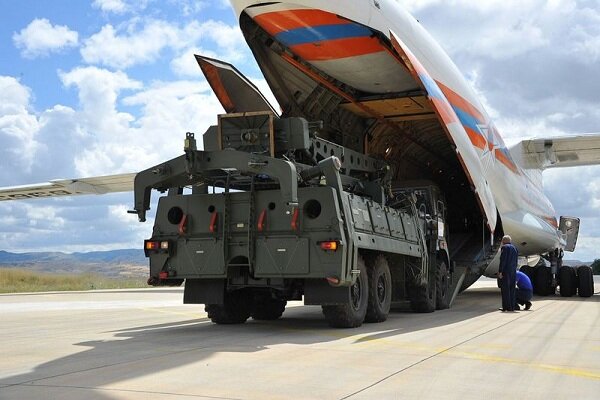The US President Donald Trump’s team has settled on a sanctions package to punish Turkey for receiving parts of a Russian missile defense system and plans to announce it in the coming days, said people familiar with the matter.
The administration chose one of three sets of actions devised to inflict varying degrees of pain under the Countering America’s Adversaries through Sanctions Act, the people said, without identifying which set had been chosen. The plan needs Trump’s approval.
One of the people said the intention is to announce the sanctions late next week. The administration wants to wait until after Monday’s anniversary of a 2016 coup attempt against Turkey’s President Recep Tayyip Erdogan to avoid fueling further speculation that the US was responsible for the uprising, as Erdogan’s loyalists have claimed.
The plan was developed after days of discussions between officials at the State and Defense departments and the National Security Council. It awaits a sign-off by Trump and his top advisers, the people said, requesting anonymity to discuss a sensitive matter. A State Department spokeswoman declined to comment.
Turkey on Friday began receiving parts for the Russian-made S-400 missile system, which the US has said puts at risk the Pentagon’s costliest weapons program, the F-35 fighter jet built by Lockheed Martin Corp. Turkey turned to Russia after failing to reach agreement with the US on defense systems.
The deliveries make it almost certain the Middle East’s largest economy will be subject to punitive US action. By law, Trump needed to pick at least five out of 12 different sanctions -- ranging from mild to harsh -- under the sanctions act, once delivery was certified.
The administration has been weighing when to punish Turkey, according to a person familiar with the deliberations who asked not to be identified discussing the sensitive situation. Washington is wary of announcing sanctions too close to the anniversary of the July 15, 2016, coup attempt that Erdogan blamed on Fethullah Gulen, an ally-turned-enemy now in exile as a Muslim cleric in Pennsylvania.
The US says the Russian system is designed to shoot down North Atlantic Treaty Organization aircraft and can collect critical intelligence that could compromise stealth capabilities of the fifth-generation fighter. In an attempt to dissuade Turkey, the US said in June it was winding down Turkey’s participation in the F-35 program. Turkish manufacturers have been helping to build parts of the jet.
Turkey has been adamant that it needs an advanced air defense system and was forced to buy it from Russia because NATO allies, including the US, failed to meet its defensive needs on Turkish terms. After meeting with Erdogan on the sidelines of a Group of 20 nations summit in June, Trump blamed problems between the countries on his predecessor Barack Obama’s failure to make a deal with Turkey.
The relationship between the US and Turkey has deteriorated over the course of the civil war in Syria, where US backing for Kurdish militants has frustrated Turkey, which considers the group an extension of the separatists it’s fighting at home. Erdogan has also criticized the US for not extraditing Gulen, whom he accuses of masterminding the coup attempt.
Acting US Defense Secretary Mark Esper said Friday that Washington’s position that Turkey can’t have both the F-35 and the Russian missile system “has not changed.” Esper spoke with Defense Minister Hulusi Akar in the afternoon, and the Turkish government said in a statement that a US delegation would visit next week to keep discussing the issue.
ZZ/PR
